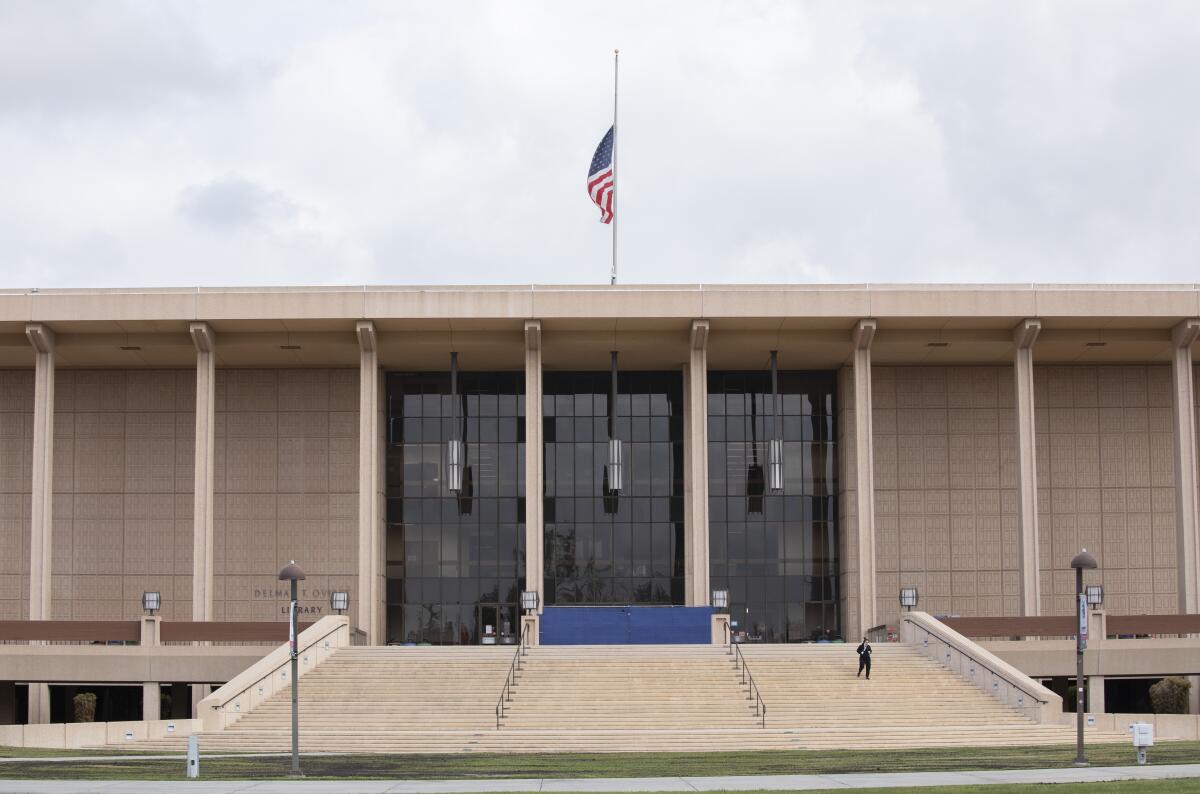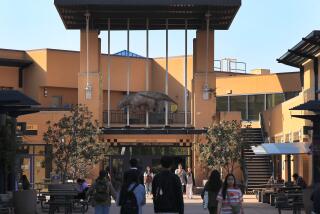Cal State schools to give students iPads in effort to cut barriers to college enrollment

Eight California State University campuses will give Apple iPads to incoming freshmen and transfer students, a technology initiative intended to help close the digital divide as students are seeking more online classes in the nation’s largest four-year university system.
By providing an essential tool without further burdening student finances, university leaders hope the free technology will make a difference for those who are deciding whether to return to college.
“Every dollar is precious for our students and families,” California State University Chancellor Joseph I. Castro said, adding that students currently in high school may be incentivized to apply and enroll in the future. “There are so many students in high schools now that do learn using mobile tech, so this is a natural for them.”
Nearly half of all Cal State undergraduate students receive Pell Grants for financial needs and nearly one-third of students are the first in their family to pursue a college degree.
The Cal State campuses of Los Angeles, Bakersfield, Channel Islands, Fresno, Humboldt, Maritime Academy, Northridge and San Marcos volunteered to be part of the first phase, which Castro hopes will continue indefinitely with more campuses joining later. Up to 35,000 students will benefit from the initiative in the fall.
The first year of the program — California State University Connectivity Contributing to Equity and Student Success, or CSUCCESS for short — is expected to cost $23.4 million from a variety of funding sources that Cal State said will differ from campus to campus based on a mix of savings and reserves, reimbursements from revenue lost during the pandemic and allocations from the 2021-22 state budget.
Isaac Alferos, president of the Cal State Student Assn. and a senior studying business administration at Cal State Fullerton, said that many of his friends struggled to get access to the technology needed to participate in Zoom classes during the pandemic. Some had to share devices with siblings who were also in distance learning.
“We’re really encouraged by this initiative, because the pandemic clearly demonstrated that digital inequity becomes a huge barrier of success for so many of our students,” Alferos said, adding that the program “represents how we’re helping build the future of education” in the wake of COVID-19.
The number of first-time freshmen dropped significantly at Cal State last year, despite the system’s record high overall enrollment in fall 2020. It’s too soon to say whether fall enrollment in higher education will increase after a nationwide decline during the pandemic.
Students already in school will continue to have access to whatever technology support their campus already provides. But the initiative focuses on the needs of future students by offering them a 64-gigabyte iPad Air, an Apple Smart keyboard folio, an Apple pencil and tech support from their campus. The students will have use of the loaned device for the duration of their time at Cal State.
The iPads are not equipped with cellular data services because of limited program funding and existing programs at some campuses that provide loaner Wi-Fi devices such as hot spots, according to Cal State spokeswoman Toni Molle.
“Depending on feedback, additional phases [of the program] could include hot spots and potentially other types of mobile devices,” Molle said, “as well as more campuses and more students.”
Cal State officials are moving forward with expanded virtual learning options next semester and beyond, with many likely to opt for a hybrid model.
“Many students were attracted to the flexibility of online education,” Castro said. “They’ll continue to pursue that because it’s more convenient for them — if they’re caring for a child or relative or if they’re having trouble commuting to a campus each day.”
Access to technology is key to that future. However, as students through the pandemic struggled with Wi-Fi or shared technology equipment with other members of their household, access was not without its challenges. Roughly 62% of college students surveyed in a California Student Aid Commission-UC Davis report said they didn’t have stable internet access, for example. The struggle accounted for at least one reason that some students left school during the pandemic.
Castro hopes that the tech initiative will help keep students in school as universities face a new normal, and contribute to Cal State’s 2025 graduation initiative that aims to increase graduation rates and eliminate inequity gaps.
“This initiative contributes to that goal because it will hopefully remove one barrier that will exist for students — and that’s the ability to have a quality mobile device that gives them the ability to learn anyplace at any time.”
More to Read
Start your day right
Sign up for Essential California for news, features and recommendations from the L.A. Times and beyond in your inbox six days a week.
You may occasionally receive promotional content from the Los Angeles Times.








